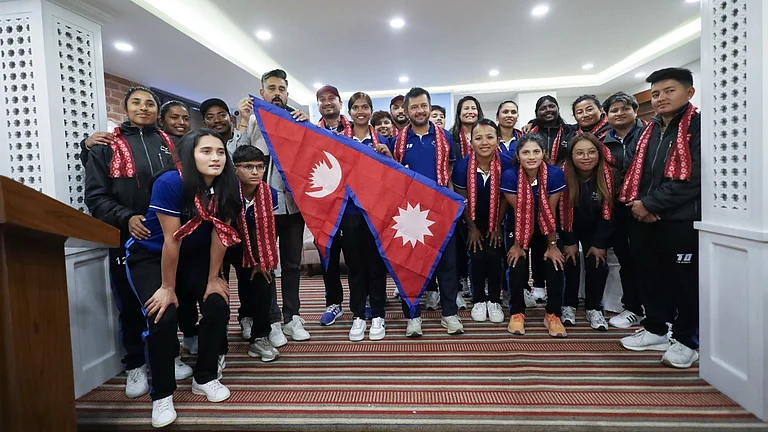The Covid-19 pandemic wreaked havoc worldwide, leading to the Indian government proclaiming a nationwide lockdown on 25 March, 2020 after the country reported its first case in late January 2020.
With daily cases peaking by mid-September to over 90,000 cases per day, pharmaceutical companies pumped the market with new medicines every other day.
The push to ayurveda amid pandemic
As India struggled with deaths and chaos, on Oct 6, 2020, the then Union Health Minister Harsh Vardhan promoted yoga and Ayurvedic herbs for the prevention of coronavirus infection and treatment of mild and asymptomatic cases.
The IMA in turn raised questions against this and also issued a press release seeking scientific evidence behind guidelines released by Vardhan, which suggested dietary measures, yoga, and ayurvedic herbs and concoctions such as ashwagandha and AYUSH-64 against the pandemic.
Moreover, Vardhan also promoted the usage of Coronil as coronavirus medication by attending events and conferences along with Ramdev. The IMA slammed it as a “blatant lie of WHO Certification” for Patanjali’s Coronil tablets. Additionally, WHO clarified that “It had not reviewed or certified the effectiveness of any traditional medicine for the treatment of Covid-19”.
Popular yoga guru Ramdev’s claims of “100 per cent recovery from Covid-19 within seven days of consuming the medicine are guaranteed” were proven to be false when Birmingham University’s test concluded that the tablets were inefficient and didn’t provide any protection against Covid-19. The trial process composed of only 100 young healthy Covid-19 patients also raised questions about the medical system of the Government of India.
The episode substantiates how India’s medical system is steered by politics than by scientific advancements. To further amplify this argument, Patanjali Ayurveda had sold 2.5 million Coronil kits and garnered Rs 250 crore by October 18, 2020.
Scrapping of Medical Council of India (MCI)
The Government of India had dissolved the Medical Council of India (MCI) and instead formed a statutory body called the National Medical Commission in 2020, inviting mass protests in over 500 cities with over 2.7 lahks IMA members. The biggest concern was the nomination of non-elected members in the NMC, scrapping the council entirely, and making it non-autonomous.
As per the members of IMA in a letter from 2016 to the then Union Health Minister JP Nadda, the constitution of NMC takes away the voting right of every doctor in India to elect their Medical Council. The World Medical Association (WMA) also extended its support to the IMA by flagging concerns about the direct involvement of the Indian Government in the nominating process.
To dolo or not dolo
When one hears Dolo, remdesivir, oxygen cylinders, or hydroxychloroquine, it rings a bell close to home as these were some of the most commonly prescribed treatments during the pandemic. However, middle persons exploited the crisis and sold these products at 10 times and sometimes even more than that price.
Vials were sold for Rs. 14,000 each, said Faridabad resident Moni Das whose husband was under treatment for covid during the second wave in 2021.
Sales of all paracetamol brands skyrocketed because it was marketed as a safe option for the treatment of COVID-19-related fever and pain. The income from paracetamol sales shot up by 138.42 per cent between the second quarters of 2020 and 2021, according to an Indian Express report citing market research firm AIOCD-AWACS. While companies like GlaxoSmithKline, the manufacturer of Crocin and Calpol, saw sales soar by 53 per cent and 158.9 per cent respectively, during that time Dolo-650 sales increased by a remarkable 289.6 per cent.
According to pharmaceutical specialists, the spurt was due to Micro Labs, the company that makes Dolo 650, overmarketing and decreased availability of rival paracetamol products, which later was faced with corruption allegations.
The Federation of Medical & Sales Representatives Association of India (FMRAI) accused the Dolo-650 manufacturer Bengaluru-based Micro Labs of tax cheating. At the beginning of 2022, it was put under income tax scrutiny as per Wion news report.
Later in a Supreme Court hearing, the Federation of Medical & Sales Representatives Association of India (FMRAI) had accused the manufacturer of giving doctors gifts worth Rs 1000 crores to get them to prescribe Dolo-650 mg as the go-to medication.
Upset at the nature of the accusations, Chief Justice DY Chandrachud stated, "This is not music to my ears. I was also asked to have the same when I had Covid. This is a serious issue and matter."


























